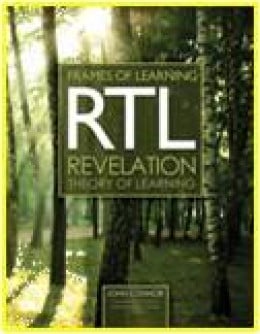How to study and prepare for exams?
How to study and prepare for exams?
Many students show good performance in the class,but after the examination/test most of their result will be average.
They saying that, while seeing question paper they forget what they studied,
Share some tips from your experience to overcome this.After learning, try to re call what you have learned. Stop studying before at least 30 mins of the examination. While writing the examination, engage in the question, that you are attending, not to bother about the rest.
ya its a good suggestion,but I think while studying one have to make some code for that particular section. By doing this surely help to find answers to questions.....
- MasculistFeministposted 13 years ago
0
The answer really depends on the subject. Some subjects are highly conceptual and language based. A good way to study for the exams of these types of subjects is to use two techniques called chunking and elaboration. Chunking involves grouping similar bits of information under a category in your mind. When you look at your notes and text, try to order the information in your mind into categories. By doing this what you will find is that when the exam paper is in front you, certain words or phrases will trigger memory recall of certain categories you have formed in your mind. To make sure chunking is effective, you will need to repeat the process a couple of times for the same information. Eventually you will get to a point where you can remember 5-10 bits of information, when you see or think of 1 bit of information that happens to be grouped with them. This is memory theory and it works.
However this is really only rote learning without elaboration. Elaboration is a technique in which after you have chunked the information, you think of hypothetical scenarios or examples in your mind and apply the information you have learned to that scenario. This not only strengthens those connections in your memory, but also dramatically improves your understanding of the meaning behind the content. This allows you to better answer questions that might say, discuss, compare, elaborate and so on. Textbooks or past exam papers also give you hypothetical scenarios that allow you to practice applying the theory and better understanding the meaning behind it.
With the more mathematical and problems based subjects, the best way to learn is to work through practice questions that are as close as possible to what is found on the exam. You must make sure the practice questions you use reflect the style found in the exam. Otherwise you might be able to answer the question, but because of the way it is worded differently you will waste time trying to understand it. Secondly, working through practice questions allows you to understand how to practically apply formula and not just rote learn them.
Before you engage in the practice questions though, make sure you understand the exact meaning of each term and the formula itself. This is critical because it allows you to understand how to apply the formula practically in any situation, not just the ideal one.
For subjects that are a hybrid of the two types, employ both sets of techniques. Get a good nights rest and don't panic! - SkeetyDposted 13 years ago
0
I used to prepare for exams about 3 weeks ahead of time, wherever possible, by going into a quiet room with all my books and a drink and a snack and study for about two hours before taking a break of about 15 to 30 minutes and then going back to the books and studying another 2 hours. The day of the exam, I would just go over the most important points that I had studied but I would stop an hour before the exam began.
in my earlier studies i also used these tips and its really useful,thanks for good tips
I find that if I have done the course work and fully researched the concepts presented I don't need to spend a lot of time preparing for an exam. I may go over the chapter reviews for the chapters covered by the exam. I may also take any self quizzes that the textbooks offers. If I find that I'm not fully versed in an area I go back and review that portion of the course material. This allows me to focus my efforts on weak areas instead of wasting time on material I all ready know.
It may sound odd, but I do not study on exam day. I let my mind rest and do something that gets my blood flowing. I feel that cramming on exam day isn't productive. It increases your anxiety and you retain very little. I'd rather get up early and go for a hike then cram.
I guess what I'm trying to say is that exam preparation should start the first time you crack open your textbook not the week of the exam.good,but everyone will not have the same mind.

There are a few significant techniques that all should use. (1) Read and write (not just read) the material you must learn. (2) Read the material for a minimum of 30 minutes before you begin to sleep. Once you reach the delta wave length of your sleep cycle your brain will coninue to rehease that material. If you can maintain that sleep cycle for approximately 4 hours; when you awaken you will have learned that material significantly. (3) Make sure you have adequate sleep at minimum the night before the examination. (4) Stay alert and attentive while studying. If you are tired or distracted it will not help you.
ISBN 978-1-4652-0882-8good suggestions.
but I think is you taken these from any book.I think you have made an error; my second suggestion (2) is not from any book that I am aware of... Suggestion (1) is profound and may perhaps be in some books...
It is the constant revision after a day in school. Most people tend to say they already know what they had studied but not revising thereafter.
It is wrong. You need to revise after school, that will re-enforce the knowledge of knowing into your brain. So when you revise for the coming exams, things will be remembered.yes,its good to revise what you studied,but most of the students didn't do it.
Study Hard, Pray Harder.
That's what my mentor tell me when i was started my college days. Simple but effective.
One specific preparation for the exam is that Sleep early before the exam, having lots of sleep will give you energy in the next day. Take heavy breakfast, it will help you a lot because taking exams consumes a lot of energy.
It is helpful to create summary on what you reviewed ( Index Card) so that when you are traveling or waiting for the exam to start, you will have a quick view on what you reviewed
Hope it can helpgood suggestions expect taking heavy breakfast as it cause sleepness.why i am saying is that, for digestion more oxygen is using, thus the amount of O2 to brain be reduced.
I think mental preparation is very important. Especially for examinations of higher levels, time provided is very limited and hence pressuring. Students should make sure that they are able to handle the pressure and do not just write their submissions without much thinking. Essentially, sufficient rest is required.
With regard to the preparation of substance or subject matter, students should take methods that they are most comfortable with. Some are able to go for a last minute marathon on their books - reading for long hours. Usually such students havehigh level of focus and endurance. They perceive themselves to have shorter span of memory, thus disliking constant revision.
Some prefer or rather, better able with constant revision. They are unable to cope with the pressure of last-minute revision and/or are unable to have such level of focus.
Nb : Not commenting on which study method is better. It depends on individuals.your views are good. Not mental preparation alone and health preparation is also required.
thanks for commenting
When I was a student sooooo many years ago I would first prepare a quiet but comfortable place, mine was the kitchen and I was not distracted by food. I have the necessary materials: pen or pencil, notebook, textbook. I usually have something to drink to keep my energy up usually soda.
Most text books have questions or outline at the end of each chapter so I would re-read the outline and answer the questions. After reading the outlines and chapter questions depending on the number of chapters that were going to be on the test, I read my notes which could be from the text book or lecture and compare my notes to the chapter outlines. Sometimes I would make "flashcards" of each chapter especially if there were dates, definitions, or important people involved.
That's basically the only way I studied, it worked for me most of the times. When it came to math I just practiced the questions in the textbook, read the highlights on performing the math problems and I used flash cards for math tests/exams too.everyone have their own way of studying technique and thanks for sharing your techniques that worked for you.I hope your suggestion be helpful...
Related Discussions
- 17
How Many Days Before the Exam You Should Start Preparation?
by AureliaMilani 14 years ago
- 6
How to study for exams when you are so not in the mood
by vignesh 11 years ago
How to study for exams when you are so not in the moodHow to focus on studying. Im having exams. But cant sit and study for more than 10 mins. Please sugeest a solution for this problem.
- 7
Does anyone have any suggestions on passing the civil service exam?
by Christopher Floyd 14 years ago
Does anyone have any suggestions on passing the civil service exam?I want to know what the test was like, what to study, things like that. Thanks for your help.
- 5
What is the best way to help children prepare for exam?
by deergha 13 years ago
What is the best way to help children prepare for exam?One should react in a relax way to children and leave them to prepare them selves or we should sit with them through out the preparation?If the age group is 10 to 12, then? Younger age is quite understandable and one can keep an eye on...
- 7
Why every student think learning or study is so boring?
by palash mazumdar 12 years ago
Why every student think learning or study is so boring?
- 5
Would you study 160 pages for an exam you may not pass and don't get paid to rea
by Michelle Dee 11 years ago
Would you study 160 pages for an exam you may not pass and don't get paid to read?Let's say you were offered a chance to be a 1099 contractor for a part-time work-at-home job. To qualify for the position, you must pass 3 exams, and you must study the exam materials first which amounts to 160 pages...














